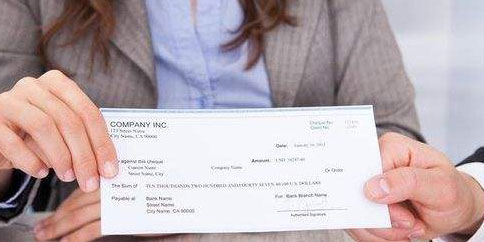What Is a Checking Account?
You can make withdrawals and deposits from an online checking account free at a commercial bank. In addition to cheques, automated teller machines, and digital debit card transactions, online checking accounts are also known as demand accounts or transactional accounts. Unlike savings accounts, an online checking account usually allows for unlimited disbursements and unlimited deposits, but savings accounts may limit both.
Understanding of Online Checking Accounts:
Industrial or corporate checking accounts, student checking accounts, joint checking accounts, and a slew of other chequing accounts with similar benefits all fall under the category of checking.
It's a business account that belongs to the company, not the individual. The company's executives and managers have the authority to sign on the account, according to the company's regulatory guidelines.
College students can open an online checking account free with their bank that will remain independent until they graduate. Having a joint online checking account means that you and your spouse or common-law partner can both write checks on the account at the same time.
Since they provide quick access to cash, most online checking accounts don't offer a very high rate of interest as a reward (if they offer interest at all). The Federal Deposit Insurance Corporation (FDIC) insures deposits up to $250,000 per depositor, per insured bank when they are kept in a chartered financial institution.
Banks frequently offer a "sweep" option for checking accounts with big balances. This strategy entails removing the majority of the account's surplus money and putting them in 24/7 interest-bearing funds. The money is returned to the checking account at the beginning of the following business day, together with any interest that accrued overnight.

Online checking account features with an eye-catching, high-tech appearance:
Additionally, online checking accounts offer a variety of high-tech options including budgeting aids and integration with financial planning tools like Quicken and Microsoft Money. Automated monthly or weekly transfers of a certain amount of cash to or from different accounts can be set up by many. Budgeting or saving money can be made easier with the help of this service. In addition to helping with planning and tax preparation, automatic account info downloads to personal finance tools are becoming increasingly popular.
Cons of Using a Checking Account Online:
The lack of face-to-face customer care offered by online checking accounts should be considered before registering for an account. Personal bankers are available at your local location to assist you with any concerns that may arise. When it comes to online banking, you'll have to settle for a call center agent at a toll-free contact number. Some online banks provide phone customer assistance 24 hours a day, seven days a week, while others only provide it during normal office hours.
Another issue to consider is the safety of one's personal information when using a computer or your financial information is one of your most precious possessions, and it can get you into a heap of bother if it gets into the wrong hands. Online banking clients' username/password information has been stolen by hackers despite the fact that the vast majority of banks' sites are protected by cutting-edge technology and data encryption. Maintaining one checking account online necessitates frequent virus and malware removal from your Desktop and mobile devices.


